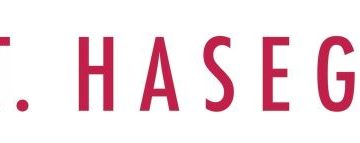The Turkish Government has established a new audit mechanism under the control of the Central Bank of the Republic of Turkey (CRBT), Deputy Prime Minister Mehmet Şimşek pointed out.
“The new regulation will establish an efficient audit committee structure which will audit with a specialist approach on a constant basis in compliance with the new Turkish Commercial Code,” he said.
Şimşek pointed out that the central bank has been maintaining its activities subject to independent audit since 2000. Citing that the bank, which has a General Directorate of Auditing in its organization, he said the CBRT is also audited by the Court of Accounts, the Prime Ministry Inspection Board and the State Auditing Board.
He said that the bank is accountable to the Cabinet and the Parliamentary Planning and Budget Commission and has to make public disclosures twice a year.
He added that the government has produced a more advanced framework for the supervision of the Central Bank in line with the regulation cited in the draft omnibus bill.
“We are developing a structure and application framework for the supervision of the central bank, taking into account the Turkish Commercial Code and the best international practices. We are taking a further and new step taking account of international standards regarding the bank’s audit practices,” he said.
Şimşek stressed that the structure of joint stock companies has been completely eliminated due to the joint stock company supervision committees’ lack of expertise and the repetitive and fixed nature of their reports, stating that the new Commercial Code adopts a new audit approach toward joint stock companies based on the established international practices.
In line with the new regulation, the Supervisory Board which was removed from the mandatory body structure of joint stock companies in accordance with the Turkish Commercial Code 6102 that came into force on July 1, 2012, will be replaced by the audit committee structure which will work more efficiently.
According to Şimşek, with the new regulation in the Turkish Commercial Code, it has been taken as a basis that authorities independent of companies will carry out audit activities in order to ensure impartiality and efficiency.
The independent audit is aimed at continuously auditing financial statements and reports, and hence accounts, as a special and technical area of expertise in accordance with international accounting standards.
“When the examples in the world are viewed, there seems to be a similar development in terms of central banks,” Şimşek said.
“For example, there are no supervisory boards and similar bodies of central banks in the U.K., the U.S., and Japan. Audits are independently conducted. Even in the Netherlands, on which the CRBT foundation was modeled, there is no supervisory board and this function is fulfilled by independent auditors.” In this context, a committee from the bank’s board of directors will monitor the operation and effectiveness of the bank’s supervision and control systems on behalf of the board.
The new Turkish Commercial Code provides a legal opportunity for the establishment of an Audit Committee with a few members not directly involved in the management of the Board of Directors. This practice, which the new law makes possible for joint-stock companies, exemplifying Germany and the U.S., is mandatory for banks in the Turkish law.
In this context, reports will be presented on a quarterly basis, instead of once a year in order to ensure the effectiveness of the system. In addition, it includes provisions that authorize joint stock companies’ board of directors to establish committees and commissions such as the Corporate Governance Committee and the Sustainability Committee, as well as the Risk Committee, to ensure the early detection and management of risks.
















